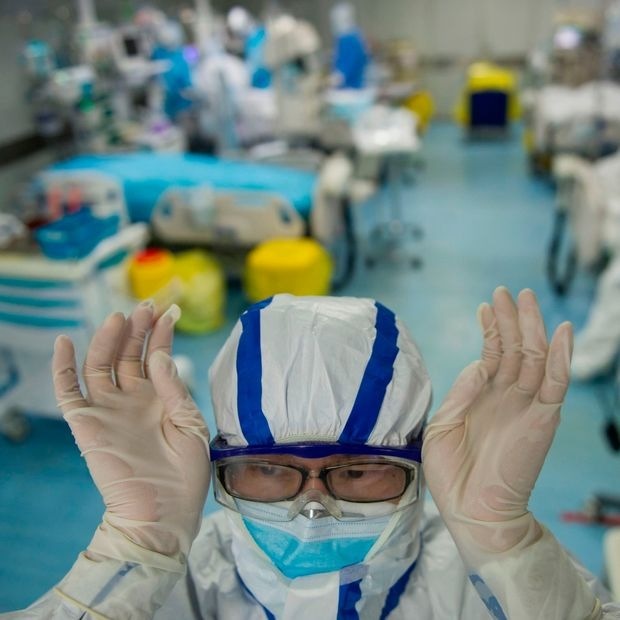The Pandemic Pendulum: From Fear-Based Shutdown to Fearless Idiocy

Leaders of nations have perpetual challenges—small and large, short-term and long-term. Sometimes these challenges come with ample warning, perhaps months in advance as a crisis builds. Other times, they arrive with relatively short notice. And then occasionally—more likely rarely—leaders face Black Swan types of events: those that arrive with virtually no warning. An example is a major earthquake that spawns a tsunami which inundates the coast of a developing country, leaving thousands dead and injured, looting in stores, violence, and the cry for help from rich western countries.
The SARS-CoV 2 (Covid-19) pandemic is not a Black Swan event.
Sufficient information started emerging in December 2019 from concerned Chinese citizens (notably ophthalmologist Dr. Li Wenliang and colleagues), including secret briefings provided by U.S. medical intelligence to the President. Canada’s prime minister and senior cabinet ministers were briefed by January on the growing virus problem, called initially the Wuhan Virus, whose origins are now traced to mid-October at a Wuhan wet market.
National political leaders have uniquely more complicated problems, and with broad constituencies, in comparison to business leaders. Democratically elected leaders are often in office for shorter periods than business leaders. As a consequence, they have a strong tendency to contaminate solutions to vexing problems with the political implications for the next elections. That aspect has produced a litany of bad decisions across many national governments.
One doesn’t have to be particularly creative or insightful to equate this tendency to the incumbent of 1600 Pennsylvania Avenue as he deliberates on how to deal with Covid-19 with a national election due in just over five months.
Oh, the challenges of holding the office of the world’s most powerful military power.
The human race has an incredible dual conflicting propensity:
1) To stick its head in the sand when a significant global problem looms, eg, rising sea levels due to climate warming.
2) To react very quickly when a crisis strikes and humans engage their creative instincts, eg, Covid-19.

The failures of national leaders, from Canada’s Justin Trudeau to Donald Trump to the UK’s Boris Johnson to Italy’s Giuseppe Conte, to immediately sit up and pay attention to what was happening in Hubei Province in late 2019 and into 2020 will be written up in the history books in the years to come. Just as we, as a society, have become familiar with the 1918 influenza ( where the first case was identified at a Kansas military base, but incorrectly labelled the “Spanish Flu” since Spain was the first country to acknowledge it had the virus), so too will our children’s great great grand children read about the catastrophic 2020 Covid-19 pandemic and the massive bungled efforts by the majority of national leaders. (Above photo 1918 Influenza)
Panic produces delayed and very poor decision-making. For example, Prime Minister Boris Johnson exhibited a cavalier attitude towards the growing pandemic for a few months, initially buying into some of his advisors’ notion of letting the population acquire a Swedish-style herd immunity. Just when Johnson discarded this advice, he contracted Covid-19 and ended up eventually in ICU. That’s when Boris got religion, a new prophet for fighting the virus with characteristic British vigour and resolve. But the consequence has been especially grave for the United Kingdom with some 35,000 Covid-19 deaths at the time of writing.
There has been no uniform approach to dealing with the pandemic. Sweden has gone one direction; time will tell if it was foolish or wise. Canada, when it reacted finally, swung the pendulum to the far end of virtual shutdown. Only as of the long May weekend have restrictions partially eased, depending on each provincial premier’s directives. But the economic damage is already severe, with a rapidly mounting price tag. In mid-May, a jointly signed letter from business leaders, economists, and health professionals urged the prime minister to allow the country to move faster to resume business. Some may argue that it’s easy for highly educated, upper middle class people to insist that businesses reopen which employ typically much lower paid employees, and the ones who’ve borne the brunt of Covid-19.
The United States’ approach to the pandemic is one for the history books. From total lockdowns in New York State and California, for example, to a nonchalant attitude in the deep South and parts of the Midwest, where social distancing has been scorned, the pendulum couldn’t decide where to rest.
In economics, the word “equilibrium” is a favourite. Of course, it’s used in a conceptual way to illustrate how an economy continually shifts in demand and supply, whether for goods, services or labour. In the case of the Covid-19 pandemic, what’s increasingly being demanded and sought, not just by economists and business people but citizens and increasingly healthcare professionals, is a more or less equilibrium between total lockdowns and a re-opened economy. In short, it’s a very delicate balancing act, requiring ongoing finesse in knowing where and when to tighten up and then release.

Because most countries (except for those such as Taiwan, Singapore, Germany, Iceland and Greece) reacted far too slowly to the emerging pandemic, we are now where we are. In the absence of proven vaccines and intermediary treatments to reduce deaths, what’s key is to enable real-time experimentation with resuming business and citizens’ freedom of movement. That means immediately knowing when a resurgence of cases starts to occur and taking prompt corrective action, including contact tracing.
Testing is a cornerstone of medical intelligence. Symptoms screening and conducting regular, random sample testing are vital to understanding the spread of the virus, its containment, and death rate (to now a rough guess).
Just as leadership pandemic paralysis is undesirable so too is the presence of fearless idiocy; this has no place in our environment. People who ignore physical (social) distancing and proper hygiene endanger us all. And they’ll contribute to dragging the pandemic on longer and with more fatalities.
That brings us back to the pendulum.
No, it’ll never reach a static point until Covid-19 is fully contained, keeping in mind it may be a disease that’s with us for years to come. For the next year, or whatever time it takes to deploy one or more vaccines, the pendulum will swing slightly if we’re doing things right—namely, adjusting along the way. But it needn’t swing wildly.
National leaders’ role in this pandemic is to control the pendulum.
This is a pandemic, and every single person in this country, and in the world, effectively, is impacted by it. Nobody’s immune to it. Nobody can avoid it. And because of that, you can change your priorities. — Mark Cuban (Owner of Dallas Mavericks and Member of Shark Tank )
Articles from Jim Taggart
View blog
When we look back to the 20th Century and reflect on great leaders, whether leading nations, organiz ...

Accountability has become one of those words used in organizations that make people wince. Many year ...

The literature on inter-generational differences has been in hyper-drive for a while. Think tanks sp ...
You may be interested in these jobs
-
dishwasher
Found in: Talent CA 2 C2 - 4 days ago
PIZZA DELIGHT SCORES SUMMERSIDE Summerside, CanadaEducation: · Expérience: · Education · No degree, certificate or diploma · Student status · Full time enrollment · Experience · Will train · Durée de l'emploi: Permanent · Langue de travail: Anglais · Heures de travail: 12 to 15 hours per week · ...
-
Développeur principal WEB
Found in: Talent CA C2 - 4 days ago
LEDUConseils Montreal, CanadaUne jeune entreprise qui soutient ses clients dans le recrutement des meilleurs talents à l'aide d'outils technologiques novateurs recherche un Développeur principal WEB (HTML, CSS, JavaScript) qui agira à titre de leader d'une équipe en forte croissance. · Fonctions : · Contri ...
-
Chauffeur·euse classe 3
Found in: Talent CA C2 - 5 days ago
BMR Coaticook, Canada Temporairede l'offre BMR | VIVACO groupe coopératif est l'un des plus importants marchands québécois indépendants du Groupe BMR, regroupant 2 centres de distribution et 16 centres de rénovations sous les bannières BMR, BMR Express et Agrizone. Nos succursales se retrouvent partout sur le ...



Comments